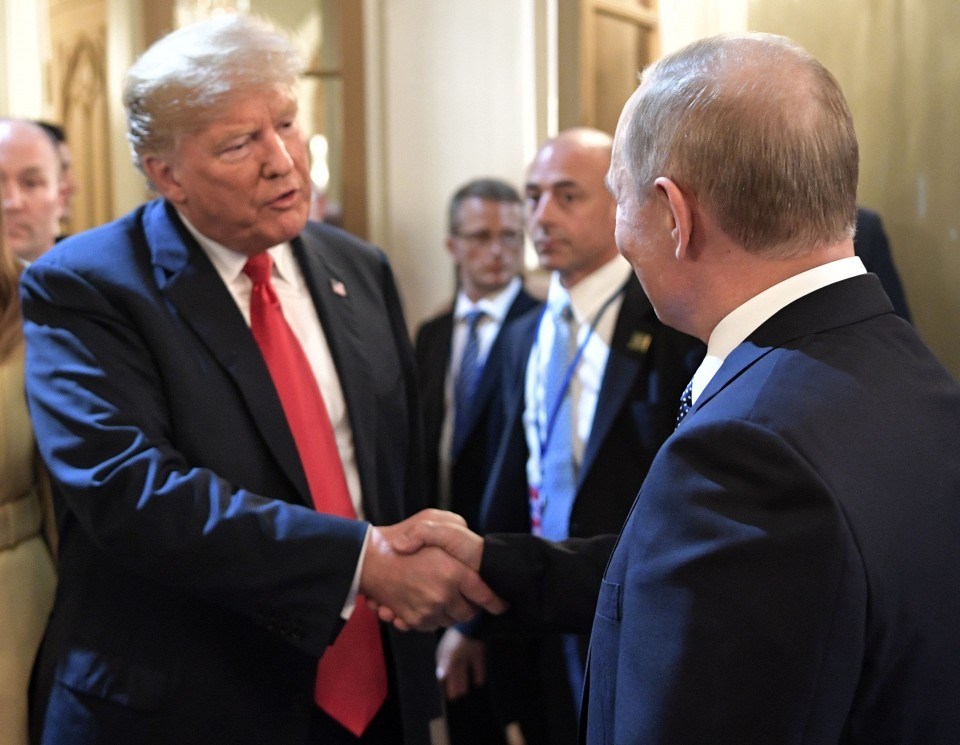Ivan Kurilla is a professor of history and international relations at the European University at St. Petersburg.
ST. PETERSBURG — When President Trump expressed doubts Monday about the conclusions of U.S. law enforcement agencies that identified Russian officers as responsible for the hacking of the Democratic National Committee back in 2016, people indignantly called such behavior by an American president “nothing short of treasonous.”
But that was only one camp of Americans. Critics of the president and supporters of the president live in two divergent worlds, within completely different sets of references. Since the end of 2016, Americans have been engaging in a new exacerbation of old conflicts about race, gender, monuments to Confederate history and other divisive issues. One might call them culture wars. In these political and cultural debates, I see Russia as playing the role of the “other.”
In the view of many Trump supporters, the facts exposed by the FBI and special counsel Robert Mueller’s investigation are just not important. What is important is the question of who provides information about the investigation — and why — to the press. Trump supporters’ answer is that there is an anti-Trump political and media establishment using Russia to obstruct Trump’s presidency.
That is why in Helsinki, Trump hoped to make his worldview prevail and win the culture wars against liberal America. He certainly could not concede to his opponents and proclaim Russia an enemy. On the contrary, he wants nothing short of presenting Russia as a new ally, a new (or rather long-abandoned) friend of the United States. If he succeeds, all the attacks on him based on the Russia investigation will be futile. Such a result cannot be achieved on the field of conventional politics, such as via a diplomatic agreement on some regional problem. Instead, Trump is working to change the whole game.
From this point of view, Trump needed something he could portray as a success, and he definitely got it. We do not know exactly what Trump and Putin discussed one-on-one behind closed doors, but their final press conference was full of promise for their future work together. This meeting, which bore no concrete results but had an elevated rhetoric of breaking the ice, may remind us of a not-too-distant historical period: Mikhail Gorbachev’s perestroika.
Many details hint that Trump is using Ronald Reagan’s series of meetings with Gorbachev as a model. In the 1980s, it was possible to change the “evil empire” into a friend within a relatively short period of time. The same Soviet Union that shot down Korean Air Lines Flight 007 in 1983, continued its war in Afghanistan and engaged in an arms race with the United States miraculously turned into a country pursuing international peace and friendly relations. Trump seems to mistakenly think of himself as another Reagan, capable of changing Russia from a foe to a friend.
The difference is that Putin is no Gorbachev.
For Putin, America is also a factor in his own domestic culture wars. Since the previous cycle of presidential elections in 2012, he activated “traditional values” as a feature of Russian policy, a controversial decision that alienated many educated and younger Russians. America is used in this new discourse as a nation representing everything opposite to those traditional values, thereby threatening Russian society.
Mostly, however, it is a symbolic threat. In the field of real politics, Putin and his friends (personal and political) suffer from U.S.-imposed sanctions and from general hostility from the U.S. political class. Putin is probably sincere when he complains that Russia is criticized by Americans for the same kind of foreign policy that the United States sometimes has, from America’s recognition of Kosovo’s independence to its unilateral withdrawal from important international treaties to its military strikes on the other nations.
For Putin, it is normal to play two games at once, simultaneously feeding anti-Americanism in his domestic propaganda and making deals with Washington in the real world. Since Putin recently secured his reelection for another six-year term as president, his need for the domestic use of the American “other” has significantly decreased, and he has at least some incentives to improve America’s image in Russian propaganda. Trump’s election set Putin up for success because Trump’s America cannot be described as a bastion of liberal values and because Trump himself, for his own reasons, is very interested in improving U.S.-Russia relations.
Both leaders have reasons to consider the meeting a success; however, there are some differences between their positions. Putin controls the situation at home, and his challenges are now mostly foreign. Trump definitely considers the Russia problem to be mostly a domestic one, but he cannot control the media or Congress. As Putin plays two games at once, can Trump?
This was produced by The WorldPost, a partnership of the Berggruen Institute and The Washington Post.




